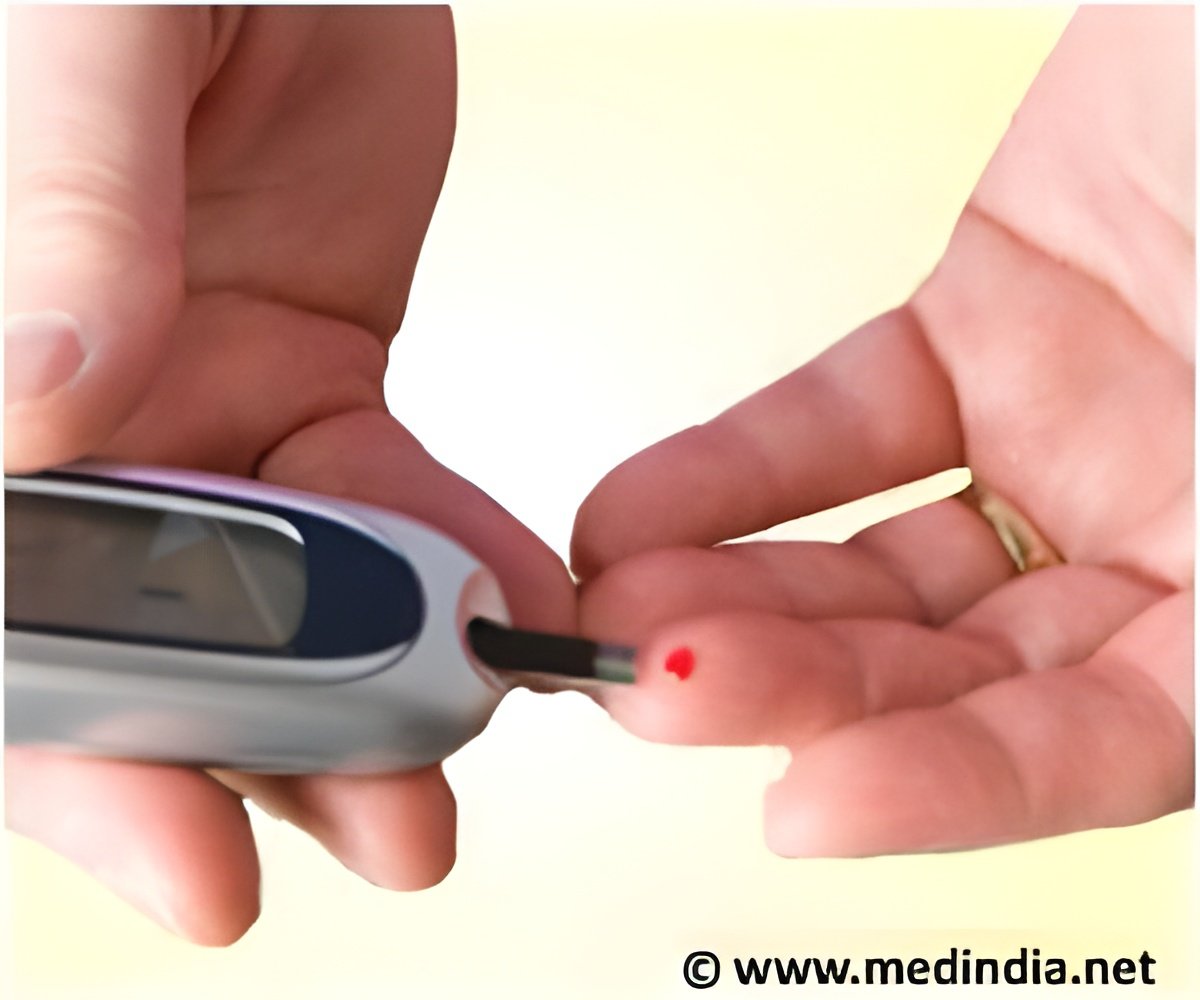Improving the control of blood glucose levels over a long term can help people with type 1 diabetes who have developed kidney complications

Running for almost 20 years, the study showed that "you have to improve glycemic control for a long period of time to see this effect among these patients," emphasized Krolewski, who is also a professor of medicine at Harvard Medical School.
Published in the Journal of the American Society of Nephrology, the study followed a cohort of type 1 diabetes patients in the Joslin Clinic who had developed proteinuria. (Proteinuria is a potential kidney complication in which urine contains elevated amounts of protein; albumin is typically the most common protein found). The condition frequently leads to end-stage renal disease (ESRD), a life-threatening ailment that can only be treated with kidney dialysis or transplant.
The Joslin study began tracking kidney impairment among the patients in 1991 and followed them until 2011. As part of the study, researchers collected measurements of glycolated hemoglobin (HbA1c), which provides an indication of average blood glucose levels, for 279 patients.
All patients with type 1 diabetes produce little or none of the hormone insulin, and depend on insulin injections to stay alive. To maintain their health and minimize kidney problems and other complications, they must actively control their glycemic levels by paying attention around the clock to their blood glucose levels, diet and exercise. Endocrinologists generally recommend an HbA1c goal of 7.0% or below, but achieving that level of control is difficult. The patients with proteinuria in the study were generally poorly controlled, with an average HbA1C of 9.3% before the study began.
Earlier investigations had suggested that achieving better glycemic control did not slow kidney complications for such patients. However, those studies were small and only extended for several years. In contrast, the Joslin research showed that those who lowered their HbA1C levels demonstrated a significantly lower risk of ESRD after a lag period of about five years. After 15 years, those with improved glycemic control had a cumulative risk of ESRD of 29% while those whose HbA1c increased or remained poor had a risk of 42%. There were no detectable differences between these two groups at the start of the study.
Importantly, patients with proteinuria could substantially postpone severe outcomes from the disease without maintaining optimal HbA1c levels, Krolewski said. "We are talking about improving HbA1c from 11% to 9%, or 10% to 8%," he said, adding that earlier work by his lab indicated that levels of HbA1c below 8-9% may be sufficient to avoid kidney damage.
Most people with type 1 diabetes will never proceed to ESRD, even if their glycemic control is far from perfect. Among the estimated 80,000 in the United States who have developed proteinuria, Krolewski said, about 10% are "rapid progressors" whose kidney function deteriorates completely within a few years.
Examining risk factors in developing kidney disease, researchers in his lab found in 2012 that high concentrations of the proteins TNFR1 and TNFR2 in blood accurately predict the risk of kidney function loss in both type 1 and type 2 diabetes 10 years in advance. This work has been licensed to EKF Diagnostics, a European firm now developing a commercial diagnostic test. Eventually, Joslin scientists hope, tests will identify diabetes patients at risk of impaired kidney function. Those patients then can be given special efforts to improve their glycemic control, and perhaps eventually also receive new combinations of drugs tailored to their condition.
Changes in clinical practice are usually driven by clinical trials, which compare results for multiple groups of patients who receive different treatments, rather than by observational investigations such as the Joslin proteinuria study. Krolewski noted, however, that a prospective clinical trial cannot be designed to address questions about effects of improved long-term glycemic control on progression to ESRD since it would not be ethically appropriate to purposely maintain a control group of patients with very high levels of blood glucose.
Other contributors to the study included Jan Skupien, James Warram and Adam Smiles from Joslin and Andrzej Galecki from the University of Michigan.
This research was funded by JDRF as part of its program to develop therapies that progressively treat and reverse debilitating complications resulting from the impact of type 1 diabetes throughout the body. "These findings provide hope that long-term improvements in glucose control may alter the course of kidney disease in people with type 1 diabetes," said JDRF program director Helen Nickerson, Ph.D. "This reinforces the importance of improved glycemic control as we pursue novel therapies to slow or reverse loss of kidney function." The National Institutes of Health provided additional funding for the work.
Source-Eurekalert
 MEDINDIA
MEDINDIA



 Email
Email










